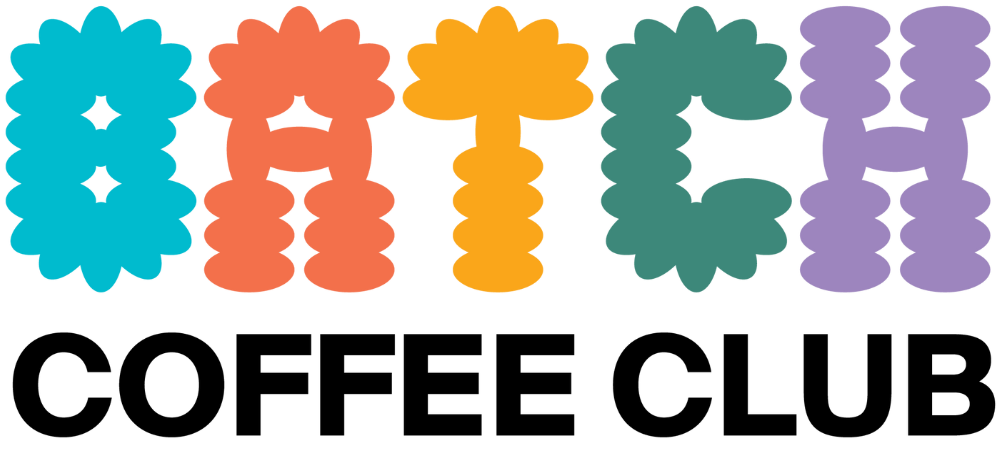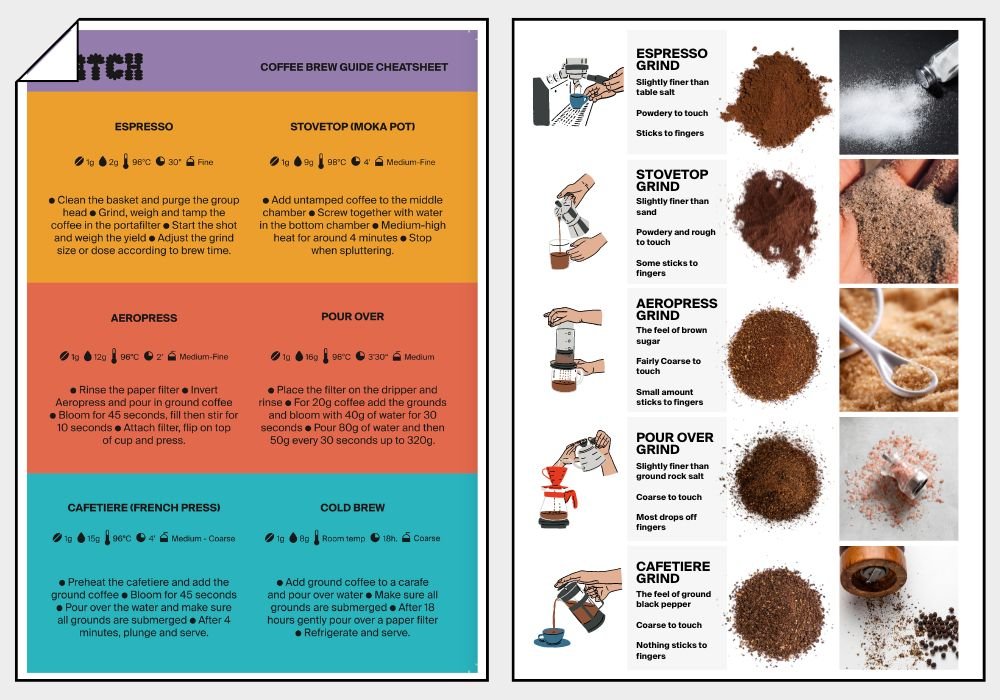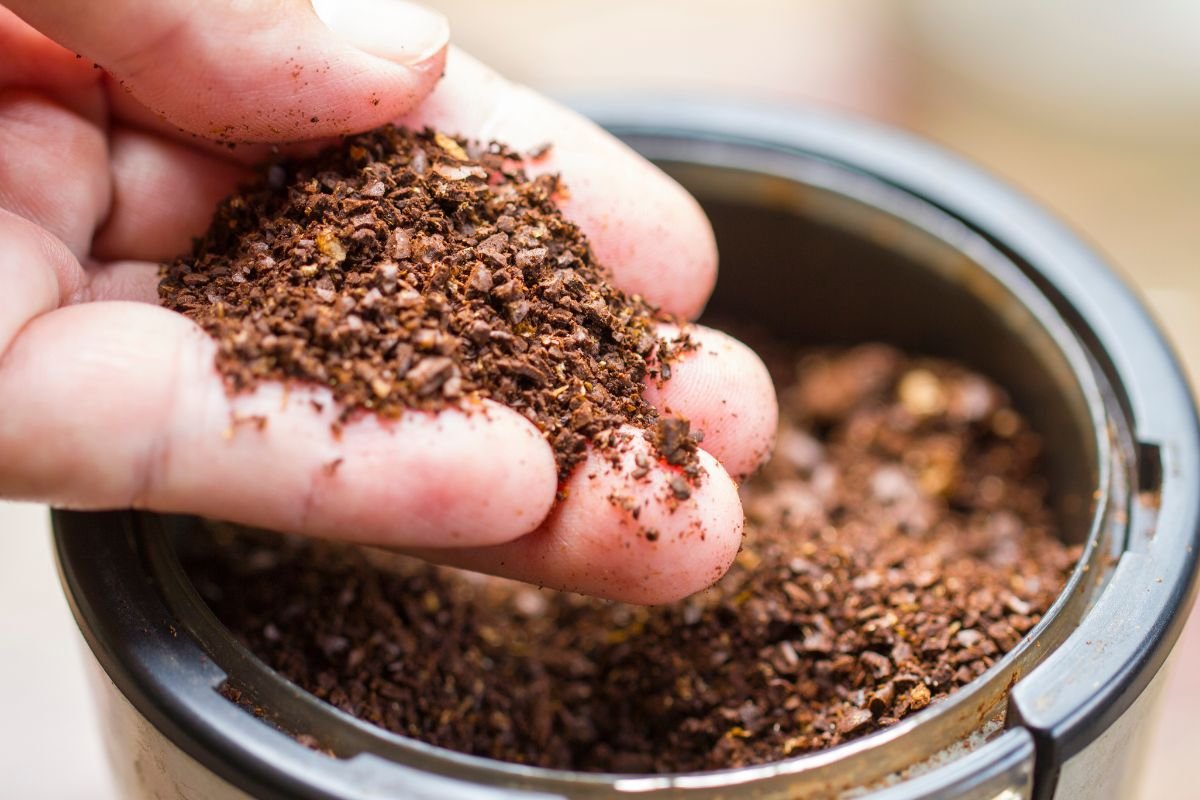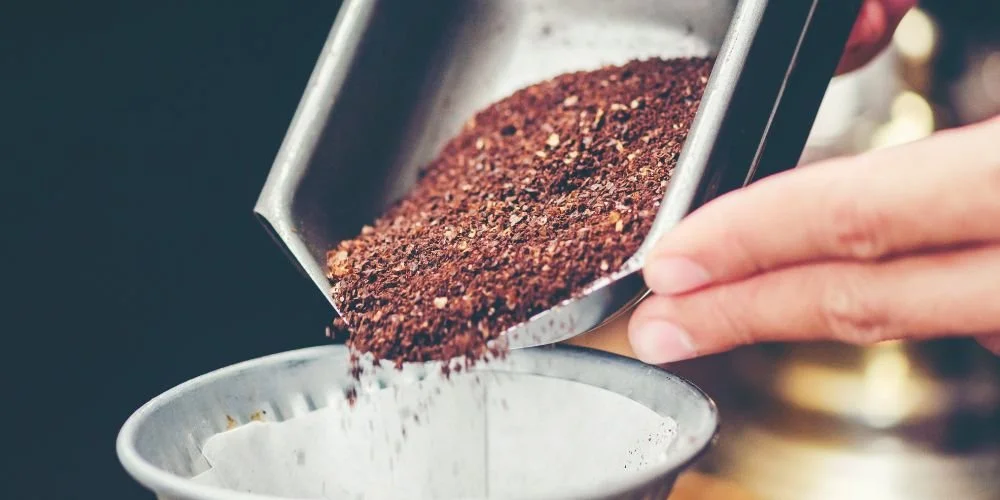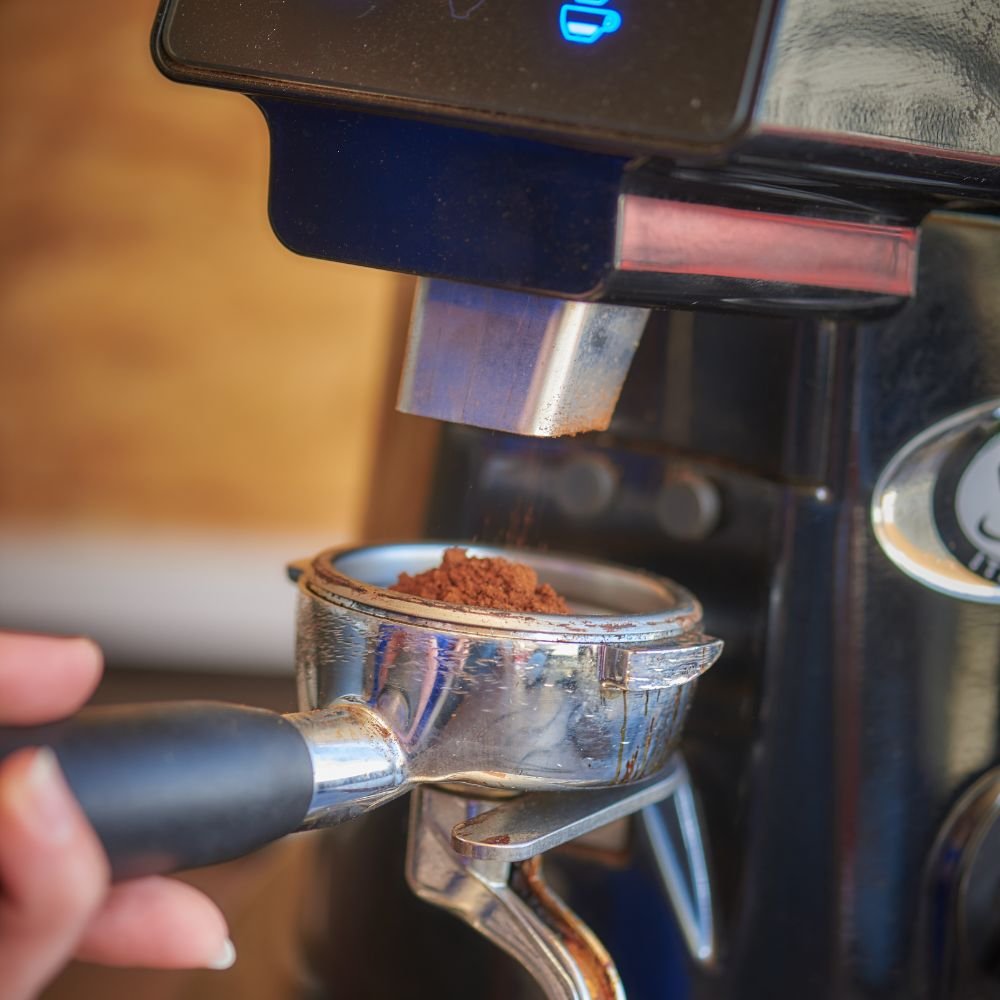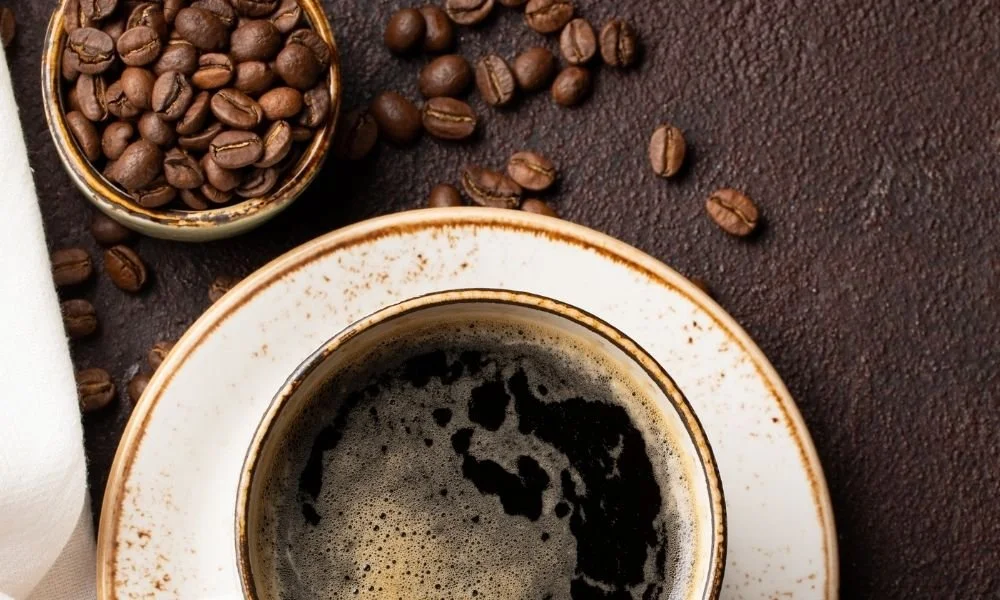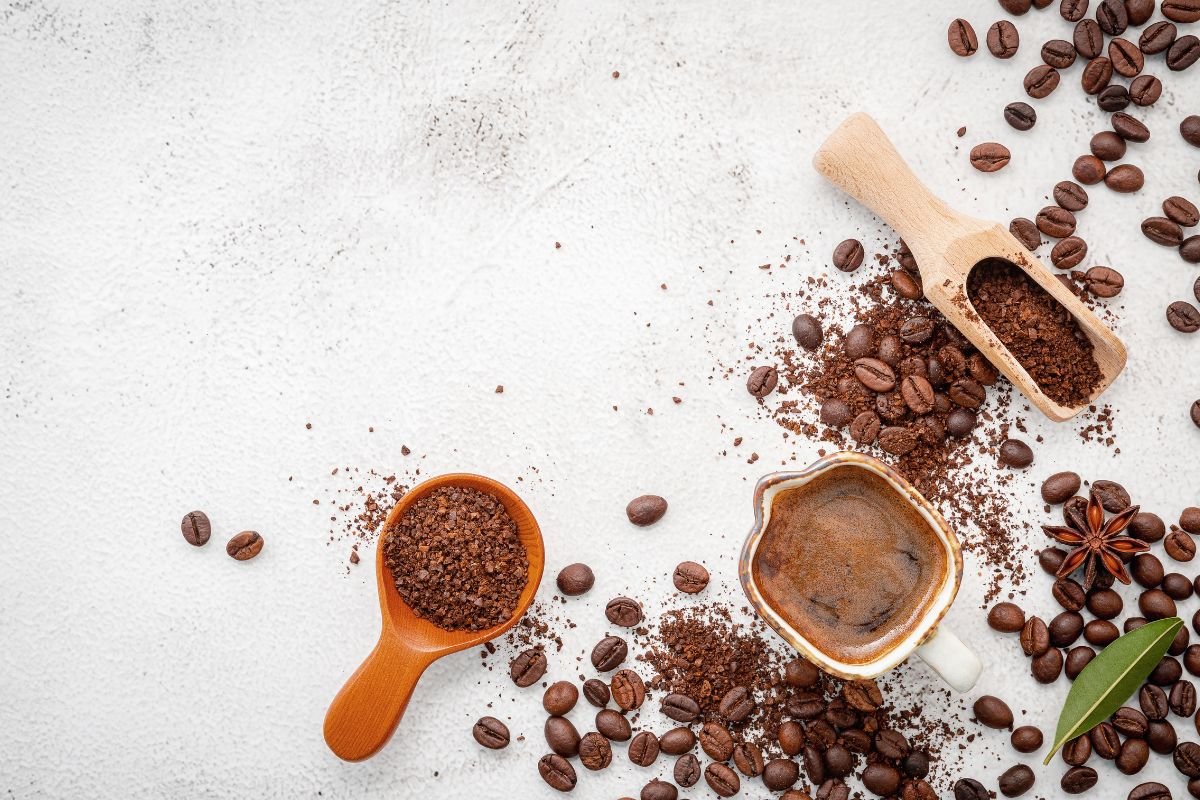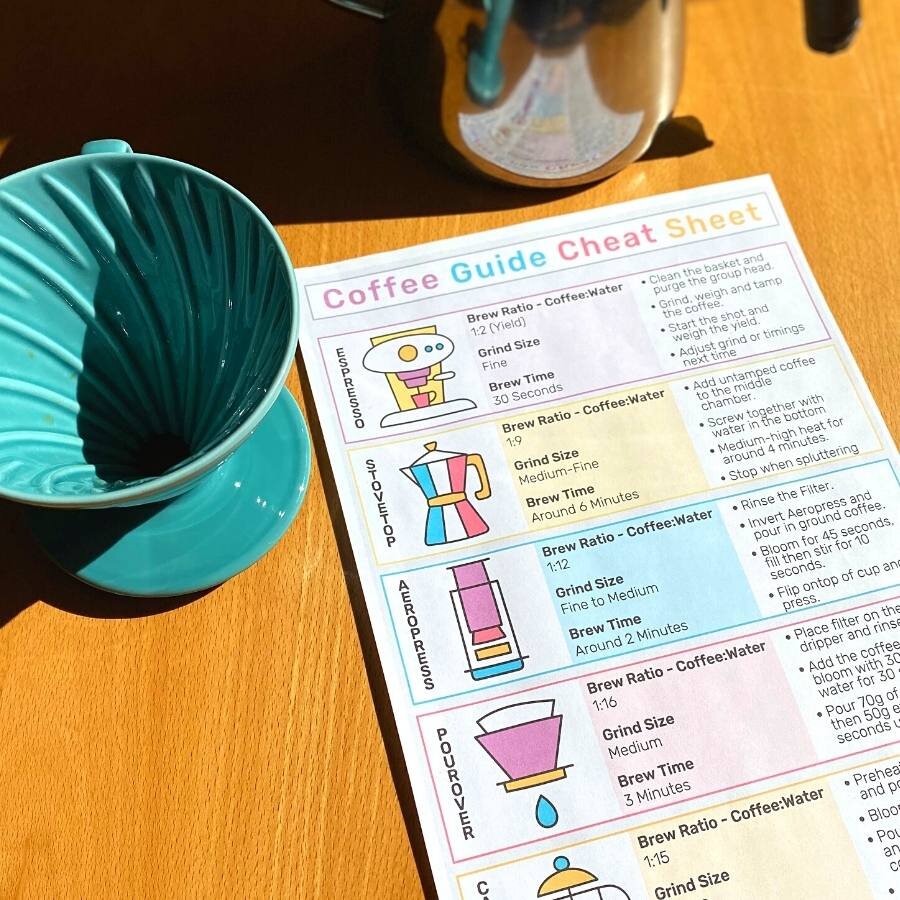Finding Your Perfect Grind Size
Is it better to grind coffee coarse or fine?
Freshly ground beans provide that odour, freshness and overall wow factor you’d hope to get from any cup of coffee.
This begs the question - how coarse, or fine should I grind my coffee beans?
What are the upsides and downsides of fine, or coarse coffee beans?
When choosing which method to use when grinding your coffee beans, consider your specific needs, tastes and preferences.
To give an insight, grinding coffee coarse, will yield a slightly “flatter”-tasting brew.
Finely ground coffee results in a smoother, richer cup of coffee.
You also have the ability to tailor the grind size to your personal taste, as well as adjust it for the type of brewing equipment you are using.
A finer grind will produce greater surface area and yield a more full bodied cup.
This can be great for espresso drinkers who want a rich, flavourful shot.
On the other hand, a coarse grind may be better for those who prefer a lighter and more complex cup.
Download Free Grind Size Cheat Sheet PDF
By keeping in mind your preferred brewing method and type of coffee you like to drink, you can find a grind that suits your tastes.
What is the best setting for grinding coffee?
This all depends on the type of brew method that you are using.
Here is a list of grind settings for different brew methods:
Extra fine - Turkish
Fine - Espresso
Fine/Medium - Stovetop/Aeropress
Medium - Pour Over
Medium/Coarse - Cafetiere
Coarse - Cold Brew
If you want a bolder flavour, then go for a fine setting. The smaller the particle size, the bolder the flavour.
Experience the best coffee in the World
How to Grind Your Beans Coarsely?
This method works best when using any coffee grinder.
For blade grinders make sure you grind for a shorter amount of time.
Burr grinders adjust the setting to coarse.
What is Coarse Coffee Good For?
Coarse coffee is generally used for French press or pour over grind methods.
This grind produces a thicker, more concentrated brew that will retain more flavor from the grounds.
While the fine coffee is generally used in espresso machines, it’s important to discuss the type of machine you’re using with your barista to get the right grind.
What happens if you grind coffee too fine?
Coffee grinders are tools used to break up the bean. Coffee is made up of many tiny particles.
Grinding breaks the particles apart and releases more flavour. Most grinders have settings for coarser and finer settings. A finer setting will make a smoother brew, but it may be harder to clean.
A coarser setting will release more flavour, but it may be hard to clean. To get the best results, try a variety of settings until you find one that works for you.
Does grinding coffee finer make it more bitter?
One of coffee's main flavours comes from the oils and roasting process. While grinding finer or using a finer grinder will reduce the surface area of coffee beans, it will not affect the flavours.
Grinding finer simply increases the surface area of the bean, allowing more oils and flavour to be exposed to a greater degree, leading to a more intense flavour.
This is why it's important to start with a coarse setting on your grinder and slowly work your way down if you're getting a sour taste.
Another reason for bitterness could be that you are using too much coffee grounds.
18g is about right for one cup of coffee, so if you are using more than that, it might just be too much for your machine to keep up with.
We recommend using freshly roasted whole beans for optimal taste.
Ground beans can become bitter when exposed to air for too long, so try storing them in an airtight container in a cool, dark place like the pantry or even under water if possible
How Does Grind Size Actually Affect Coffee Extraction?
The relationship between grind size and coffee extraction is fundamentally about surface area and time. When coffee is ground finer, there's more surface area exposed to water, which leads to faster and more intense extraction.
This increased extraction releases more compounds, including caffeine, oils, and flavor molecules, but can also extract bitter compounds if not properly controlled.
Think of it like sugar dissolving in water - finely granulated sugar dissolves much faster than sugar cubes because there's more surface area in contact with the water.
In coffee, this principle affects three key aspects: extraction speed, flavor complexity, and body. Finer grounds extract quickly but can become bitter if overextracted, while coarser grounds extract more slowly, potentially producing a cleaner but less intense cup.
Water temperature and pressure also interact differently with various grind sizes.
For example, the high pressure in espresso machines requires a fine grind to create proper resistance, while the longer steeping time of cold brew works best with coarse grounds to avoid over-extraction during the extended brewing period.
Does a finer grind make coffee less bitter?
When coffee is ground to a fine enough consistency, it can make a difference in how bitter it tastes.
However, this is not always the case. The way that coffee is processed during grinding can make all the difference in how bitter your coffee will taste.
If you grind your beans too fine, they will release more of the essential oils in the plant that give coffee its taste, making it more bitter.
A coarser grind will yield a more complex cup of coffee that is less bitter.
A medium-coarse grind results in a very smooth and balanced cup with a medium body and a mild sweet aroma.
A coarsely ground coffee will retain most of the bean’s natural oils and therefore has less bitterness than a finely ground one.
On the other hand, a fine grind will yield a creamy thin tasting cup of coffee.
Coarsley ground coffees are more delicate and light in flavour than their fine counterparts.
They have more acidity in the cup but can sometimes be difficult to brew due to their consistency.
What is the best grind for drip coffee?
There are many different ways to grind coffee, and the best grind for drip coffee depends on personal preference.
Some people prefer a medium-fine grind, while others prefer a coarser grind.
Ultimately, it is up to the individual to experiment with different grinds to find the one that produces the best results for their drip coffee maker.
Does grind size affect coffee taste?
Yes, the grind size of coffee can affect its taste. If the grind is too fine, the coffee can taste bitter; if the grind is too coarse, the coffee can taste weak and sour.
The best grind size for coffee is somewhere in the middle, where the coffee has a strong flavour without being too bitter.
Should I grind coarser for a dark roast?
The answer to this question depends on your personal preferences.
Some people prefer a dark roast because it has a more intense flavor, while others find that the coffee tastes bitter or burnt.
If you're trying to achieve a dark flavour, you'll likely need to grind your coffee beans finer than you would for a lighter roast.
Is it worth it to grind your own coffee?
Grinding your own coffee is definitely worth it!
Not only does it give you control over the quality and flavour of your coffee, but it can also save you a lot of money.
By grinding your own beans, you can avoid paying high prices for pre-ground coffee.
Additionally, grinding your own coffee yourself can help you to develop a personal preference for the flavour and quality of your coffee.
Can you over grind coffee beans?
Some people may find that grinding their coffee beans too finely produces a strong cup of coffee, while others may find that excessive grinding results in coffee that is overly bitter.
Ultimately, it is up to the individual to experiment to see what produces the best cup of coffee for them
What is cowboy coffee?
Cowboy coffee is a type of coffee that is typically made with lighter roasts and higher caffeine levels.
It is essentially unfiltered coffee, with the grounds still in the cup.
It is often served cold or iced, and is popular in western states such as Texas and Colorado.
How many seconds should coffee run for?
There is no definitive answer to this question as the ideal brewing time for coffee can vary depending on a number of factors, including the type of coffee beans used, the grind size, the amount of coffee used, the brewing method, and personal preference.
Of course, you may need to experiment a bit to find the perfect brewing time for your particular setup and tastes.
What Are The Signs of Wrong Grind Size in Your Coffee?
Identifying the wrong grind size in your coffee involves understanding both taste and visual cues. In terms of taste, an too-fine grind typically produces bitter, harsh flavors and a chalky mouthfeel, while an overly coarse grind results in weak, sour, and watery coffee lacking in body and complexity. But the signs go beyond just taste.
For pour-over methods, you can observe the flow rate - if water passes through too quickly, your grind is too coarse, leading to under-extraction. If it barely drips through, your grind is too fine.
In a French press, overly fine grounds will slip through the mesh filter, leaving sediment in your cup. For espresso, incorrect grind size shows in the extraction time - too fine leads to over-extraction and bitter taste, while too coarse results in fast, weak shots.
Visual indicators during grinding also matter. Properly ground coffee should have consistent particle sizes without excessive dust (fines) or chunks (boulders).
When adjusting your grinder, make small, incremental changes and keep notes about the results to dial in the perfect setting for your brewing method and taste preferences.
These insights help coffee enthusiasts understand not just what grind size to use, but why it matters and how to troubleshoot common issues.
The goal is to empower readers to make informed decisions about their coffee grinding approach based on their preferred brewing method and desired taste profile.
How many coffee beans do I need to grind per cup?
The amount of coffee beans needed to grind per cup can vary depending on the type of coffee you are using.
For example, if you are using a French press, then you will need more beans than if you are using a drip coffee maker.
